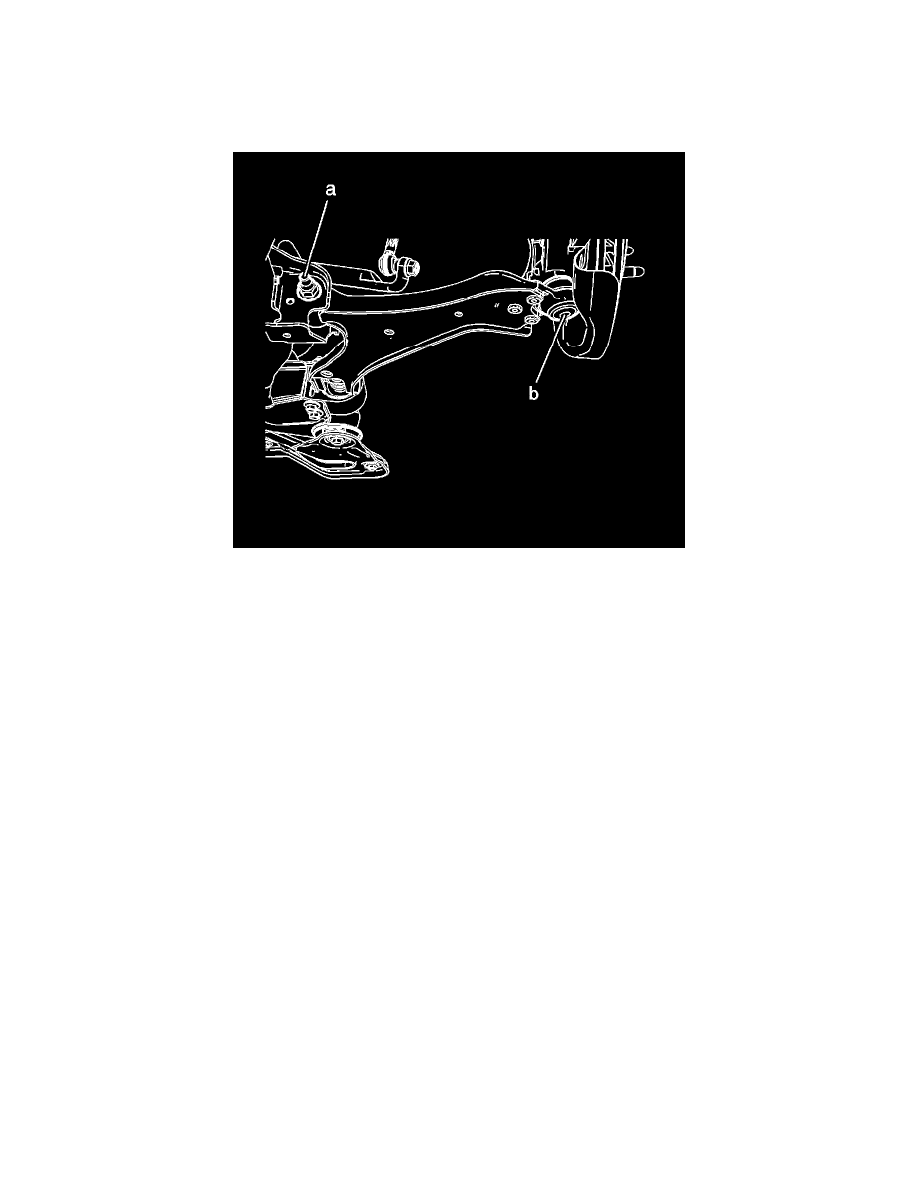Terrain FWD L4-2.4L (2010)

9. The true P height is the average of the measurements taken in steps 4 and 8. Refer to Trim Height Specifications (See: Specifications/Mechanical
Specifications/Suspension/System Specifications/Trim Height Specifications).
10. Repeat the above steps at the rear of the vehicle for the R heights.
11. If the P and R heights are outside of specifications, measure the Z and D heights.
Measuring the Z Height
Note:
*
In order to obtain the proper measurement, Z will equal inner minus the outer.
*
The left and right Z height difference should be no more than 12 mm (0.47 in).
Use the following procedure to measure the Z height:
1. Lift the front bumper of the vehicle up about 38 mm (1.5 in).
2. Gently remove your hands and let the vehicle settle.
3. Repeat this operation 2 more times for a total of 3 times.
4. Repeat this jouncing operation 2 more times for a total of 3 times.
5. Measure from the center of the forward lower control arm attaching bolt tip (a) to the alignment rack.
6. Measure from the center of the ball joint (b) to the alignment rack.
7. The difference between these 2 measurements (a-b) is the Z height.
8. Push the front bumper of the vehicle down about 38 mm (1.5 in).
9. Gently remove your hands and let the vehicle settle.
10. Repeat this operation 2 more times for a total of 3 times.
11. Re-measure the Z height as in step 4.
12. The true Z height is the average of the measurements taken in steps 4 and 8. Refer to Trim Height Specifications (See: Specifications/Mechanical
Specifications/Suspension/System Specifications/Trim Height Specifications).
If any of these measurements are out of specifications, inspect for the following conditions:
*
Worn or damage suspension components
*
Collision damage
Measuring the D Height
